World’s Descent into Madness: The Chief Culprits are 'Greed is Good' and 'Mammon is King'
Crisis after Crisis: Financial Crisis. Environmental and Ecological Crisis. Biodiversity Crisis. Housing Crisis. Health and Well-being Crisis. Education Crisis. Spiritual and Moral Crisis. Trust and Trusting Crisis. Depression, Anxiety and Loneliness Crisis. Fake, Fake News and Faking Crisis. Reality Crisis. Populism and Fascism Crisis, Brexit and Trumpism Crisis,... -neoliberalism has played its part in them all.
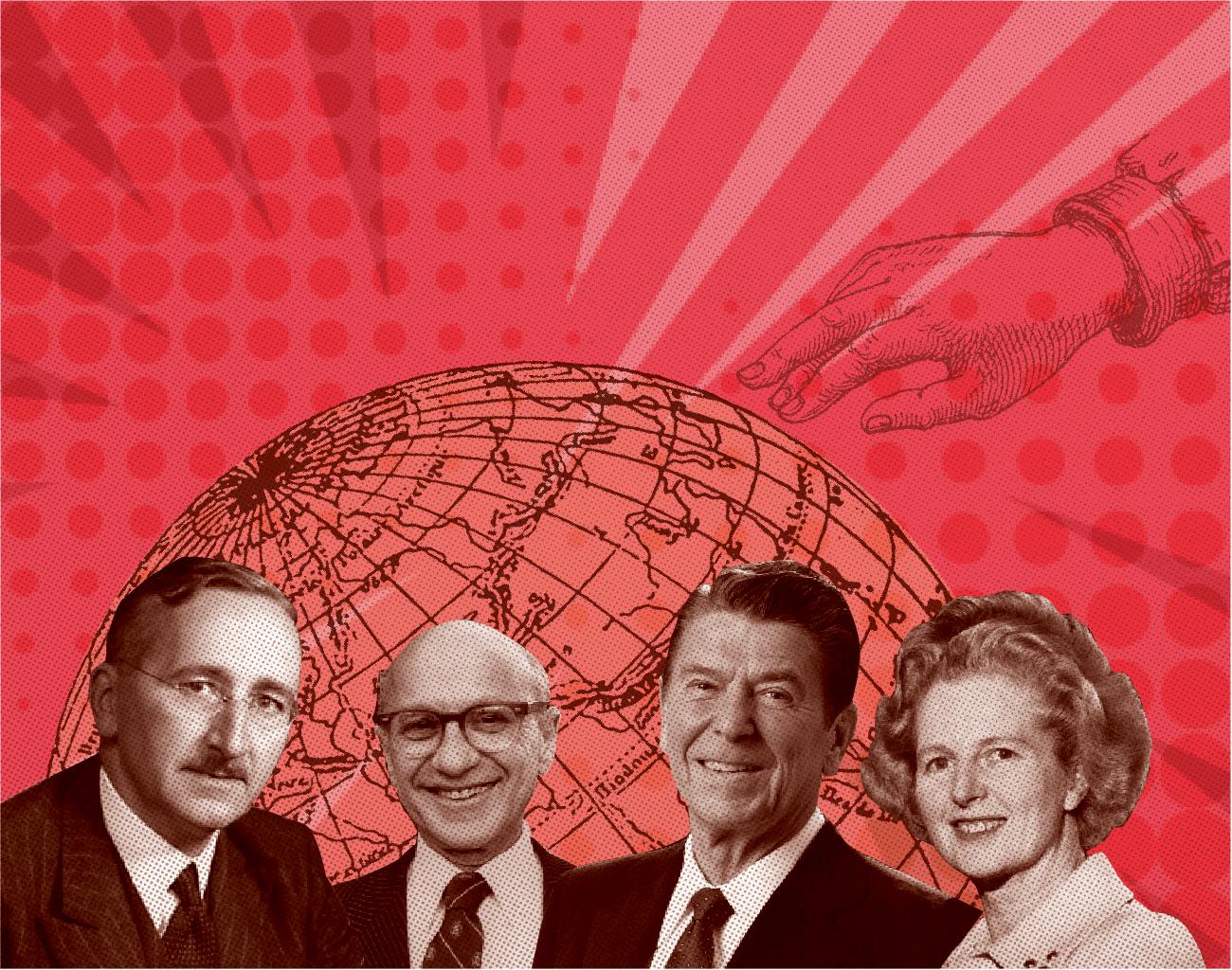
The Big 4 Culprits: Hayek, Friedman, Reagan, and Thatcher.- Photo: Mary Parsons
This presentation is dedicated to the youth of the world, our children and grand- children, who are the unfolding story of the decades ahead. May they rise to the challenge of leading our troubled world, with hope and wisdom in the interest of the common good to a better future
This is why, I believe the publication of a new economics text book, ‘The Economy’ is so important and so timely. More on this later.
‘A new economics: Teaching of discipline needs to rely less on abstract models’
‘The failure of the dismal science to predict and explain the worst financial crash since the Depression has understandably prompted some reflection among the more thoughtful ranks of academics.
‘The case for new thinking is strong. Economics teaching – even to first-year undergraduates – had before the crisis become too wedded to scientific pretension. Excessive faith was invested in abstract mathematical models, while insufficient effort was made to link these to real-life experience. The absence of topicality not only robbed the subject of interest and excitement, it risked not equipping the student with the skills to grapple with everyday problems.
‘The recital of laws and ritual genuflection towards mathematical models may lend the subject a certain intellectual respectability, but much of this is spurious.
‘There are stirrings in the academic gloaming. The failure to predict the crash not only unsettled Queen Elizabeth II – who famously gathered some economists together to ask them how they had missed it. There has been some soul-searching among academics too.
‘There is a recognition that disciplines such as psychology, history and finance need to be more firmly embedded in economics teaching. The route to publication in top journals should involve empirical research, not just the firing up of an Excel spreadsheet.
‘But, as the crisis showed, we should be humble about the limits of our knowledge. Substituting a little humility for pretension would be a welcome step.’- Financial Times editorial, November 12, 2013
And then, seven years later, in a different editorial it noted the following:
“Radical reforms – reversing the prevailing policy direction of the last four decades – will need to be put on the table. Governments will have to accept a more active role in the economy. They must see public services as investments rather than liabilities, and look for ways to make labour markets less insecure. Redistribution will again be on the agenda; the privileges of the elderly and wealthy in question. Policies until recently considered eccentric, such as basic income and wealth taxes, will have to be in the mix.”- Financial Times editorial, 4 April 2020
Wow! You might justifiably be wondering what’s going on here? How could the tribune of capitalism suddenly be advocating for different ways of teaching economics,research, analysis on wealth creation and prosperity, more redistribution, bigger government, and even a basic income?
A comment on a Financial Times editorial (November 12, 2013)
‘Fix a broken economic system: It’s time to rethink that for the good of society’
Economic Growth: The Index of Misery
The Shaming of Economics Education
Calling all academic economists: What are you teaching your students?
In Praise of the Economic Students at the Sorbonne: The Class of 2000
International Students call for pluralism in economics
GCGI supports the International Student Initiative for Pluralism in Economics
Debunking Neoliberalism and Fraudulent Economics
Lies, damn lies and neoliberal economics and economists: The emperor with no clothes
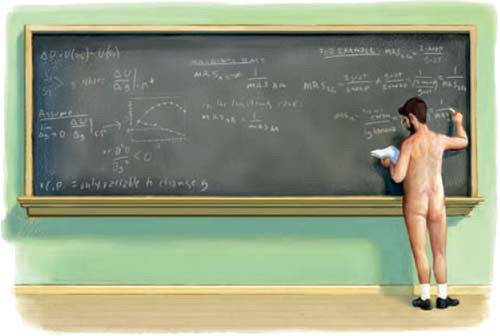
Photo: transitionvoice.com
The global application of a fraudulent economic theory, promoted and taught by its cheerleaders- the fraudulent neoliberal economists- has brought the world to its knees. Yet for those in power, it offers riches, whilst it showers its victims with misery, inhumanity, poverty, destitution and death.
Ethics boys!
'Sir, Around 1991 I offered the London School of Economics a grant of £1 million to set up a Chair in Business Ethics. John Ashworth, at that time the Director of the LSE, encouraged the idea but had to write to me to say, regretfully, that the faculty had rejected the offer as it saw no correlation between ethics and economics. Quite.'- Lord Kalms, House of Lords, letter to the Times (08/03/2011)
Economics, Globalisation and the Common Good: A Lecture at London School of Economics
'The real science of political economy, which has yet to be distinguished from the bastard science, as medicine from witchcraft, and astronomy from astrology, is that which teaches nations to desire and labour for the things that lead to life; and which teaches them to scorn and destroy the things which lead to destruction.' John Ruskin- 'Unto This Last'
Bastard Economics, Neoliberalism and Peoples’ Tragedy
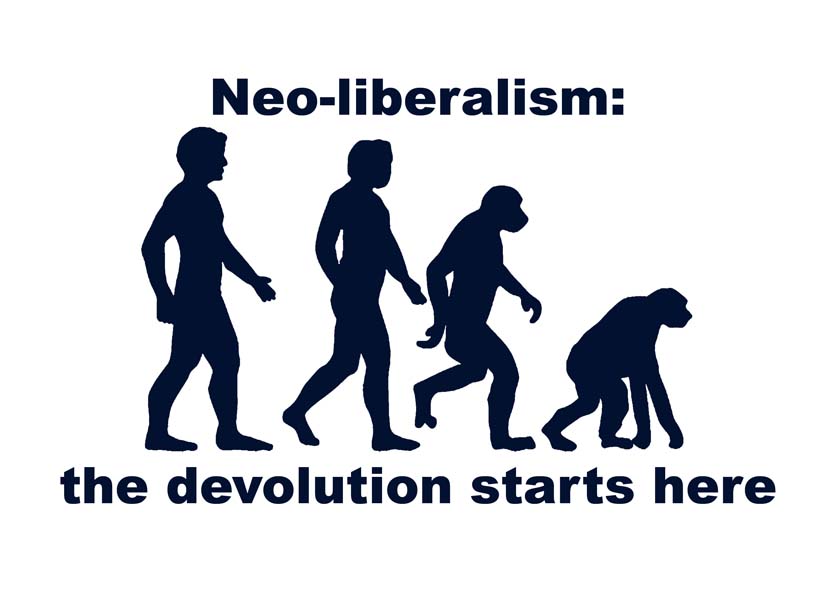
Photo:redandsky.blogspot.co.uk
Death and Destruction on Brothers’ Road to Serfdom
People’s Tragedy: Neoliberal Legacy of Thatcher and Reagan
The Destruction of our World and the lies of Milton Friedman
Neoliberalism destroys human potential and devastates values-led education
Economic Growth: The Index of Misery
Britain today and the Bankruptcy of Ideas, Vision and Values-less Education
Neoliberalism and the rise in global loneliness, depression and suicide
The Broken Economic Model and the Inhumanity of the Lost Decade of Austerity
Neoliberalism destroys human potential and devastates values-led education
The Mother of all Heists: ‘The Neoliberal Looting of America’
The Neoliberal Plague and Coronavirus
Neoliberalism and Devaluation of Democracy
And now reverting back to “The Economy”: Economics for a Changing World
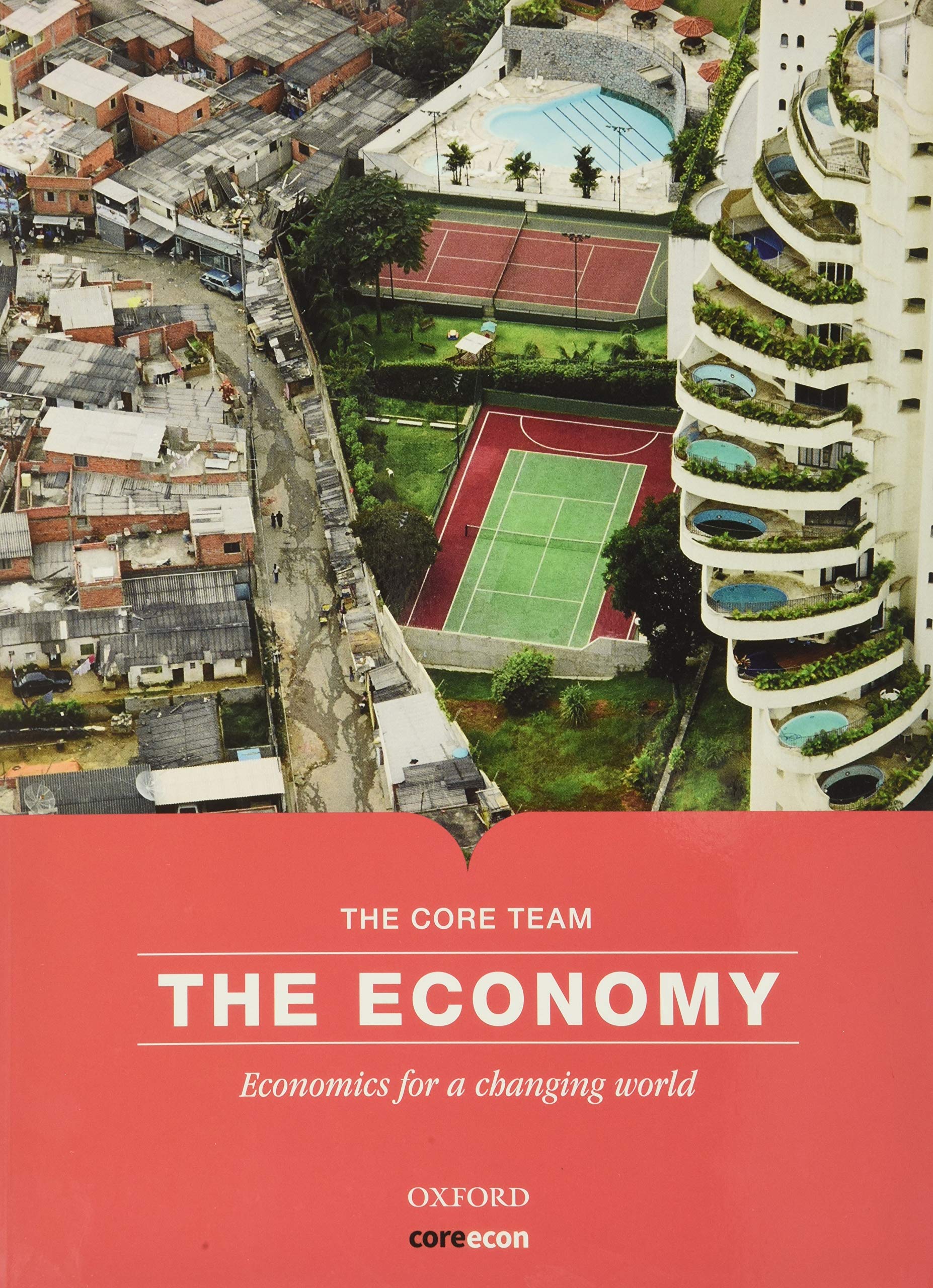
Photo and more about ‘The Economy’
It seems the neoliberal era is ending. The question is: What comes next?
Is It Time for a New Economics Curriculum?
“The Economy,” a new textbook, is designed for the post-neoliberal age.
By Nick Romeo
October 8, 2021, Via The New Yorker
‘In the nineteen-forties, when the Massachusetts Institute of Technology was considering adopting a new economics textbook, the school’s president received warnings about the book’s author: “It is perfectly obvious that the young man is socially-minded if not strictly communistic,” one correspondent wrote. The young man in question was the American economist Paul Samuelson, a future Nobel laureate. Samuelson’s textbook “Economics,” published in 1948, would dominate the market for nearly half a century; it introduced a Keynesian vision—in which the government would take a more active role in managing the economy and promoting full employment—to generations of students and sold millions of copies.
The writer who accused Samuelson of communism worked as an executive at the Bell Telephone Company. Another concerned letter came from an M.I.T. graduate who was now part of the management at the chemical company DuPont. He wanted any text adopted by M.I.T. to be “thoroughly objective and mature,” and worried that Samuelson was neither of these things. The objectivity sought by the businessmen seemed to require a commitment to small government and minimally regulated capitalism. After the Second World War and the Great Depression, however, a Keynesian outlook was ascendant.
The opposition to Samuelson’s book didn’t prevent its adoption at M.I.T. or other universities. But, by the early nineteen-fifties, a companion volume of readings had joined the syllabus at M.I.T., alongside Samuelson’s text. These readings, which were meant partly to respond to the notion that Samuelson harbored “un-American tendencies,” stressed the value of unrestrained free enterprise. In a sense, the critics of Samuelson’s textbook were right: an introductory economics curriculum has high political stakes. Samuelson was hardly a communist, but it was certainly true that he wanted to influence American politics. “I don’t care who writes a nation’s laws—or crafts its advanced treaties—if I can write its economics textbooks,” he wrote, in 1990. “The first lick is the privileged one, impinging on the beginner’s tabula rasa at its most impressionable state.”
Economics is a social science, driven by data and equations. But it is also deeply informed by politics, and economists, who have diverse political views, wrangle over ethical values and also numerical ones. In the same way that Samuelson helped to redefine economics education after the devastation of the Great Depression, an international team of collaborators is now seeking to change how the discipline is taught and to shape the world view of future economists. Led by Samuel Bowles and Wendy Carlin, the group aims to prepare students for a world transformed by the 2008 financial crisis, accelerating wealth inequality, climate change, and global pandemics. They say that their initiative—called core, for Curriculum Open-Access Resources in Economics, and anchored by a free online introductory textbook titled “The Economy”—will “teach economics as if the last thirty years had happened.”...
This is how one student of economics at U.C.L. reacted to “The Economy”:
“totally shocking.” The book, she said, included the idea of self-interest, but “also added altruism, reciprocity, inequality aversion—it was just completely different.” She went on, “One of the key things that core does differently is depict people, economic agents, more realistically, more three-dimensionally.” This was also true of its depiction of economists. The book “really exposes periods where economists got things wrong,” she said. “It makes you take the models and the theories that we are taught with a pinch of salt. It’s not, you know, ‘You can learn these principles, and then analyze everything just by those principles.’ Just as the world is changing, you have to change as well.” Similarly, a young woman from India who was majoring in economics at U.C.L. noted that Carlin’s course, using the core curriculum, had been the only class in her field that moved beyond abstractions to make the real-world implications of economics clear.
When a German Belgian student in his second year of studying economics was asked what he thought of the course, and whether he believed it mattered what students learned in introductory economics. He replied by pulling up a quote from Keynes and said:
The ideas of economists and political philosophers, both when they are right and when they are wrong, are more powerful than is commonly understood. Indeed, the world is ruled by little else. Practical men, who believe themselves to be quite exempt from any intellectual influences, are usually the slaves of some defunct economist.
In an essay from 1923, Keynes urged his colleagues to cultivate a broader vision. “Economists set themselves too easy, too useless a task if in tempestuous seasons they can only tell us that when the storm is long past the ocean is flat again,” he wrote. Carlin and Bowles have written a useful textbook for navigating a turbulent time.’- Continue to read
……
...And now I wish to note the possible paths on how we may put right what has so tragically gone wrong, on how to stop death and destruction and how we may begin to value and nurture life again
I am positive and hopeful. We can change the world for the better. Come with me on this journey of self discovery in the interest of the common good
Yes, We can win over death and destruction, the neoliberalism, If we listen to the Voice of Hope, echoing across the world,
The Voice of Hope
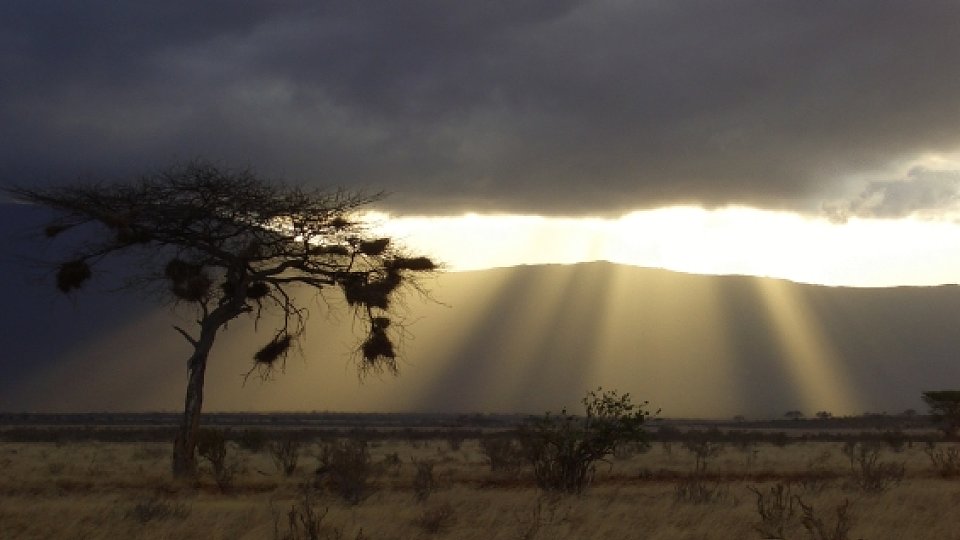
Photo:twr.org
This is How Wisdom Grows- Educating Hearts and Minds
‘Some say that my teaching is nonsense.
Others call it lofty but impractical.
But to those who have looked inside themselves,
this nonsense makes perfect sense.
And to those who put it into practice,
this loftiness has roots that go deep.
I have just three things to teach:
simplicity, patience, compassion.
These three are your greatest treasures.
Simple in actions and in thoughts,
you return to the source of being.
Patient with both friends and enemies,
you accord with the way things are.
Compassionate toward yourself,
You reconcile all beings in the world.'- Lao Tzu

Photo:LPOTY
“When beauty touches our lives, the moment becomes luminous. These grace-moments are gifts that surprise us. When we look beyond the moment to our life journey, perhaps we can choose a new rhythm of journeying which would be more conscious of beauty and more open to inviting her to disclose herself to us in all the situations we travel through.”-John O’Donohue
Remaking Economics in an age of economic soul-searching
The World would be a Better Place if Economists had Read This Book
In Praise of Darwin Debunking the Self-seeking Economic Man
Composing a New Life: In Praise of Wisdom
Brexit, Trump and the failure of our universities to pursue wisdom
Calling all academic economists: What are you teaching your students?
The Journey to Sophia: Education for Wisdom
My Economics and Business Educators’ Oath: My Promise to My Students
What might an Economy for the Common Good look like?
Christmas and New Year Message Holds True: A Time to Weave a New and Hopeful Tapestry of Life
What if Universities Taught KINDNESS?
Wouldn’t the world be a better place with a bit more kindness? Harnessing the Economics of Kindness
And finally, let us take our message of hope, wisdom and good education for a better world to COP26 in Glasgow
Calling All Teachers: Please Join Me in ‘Education of My Dream’
